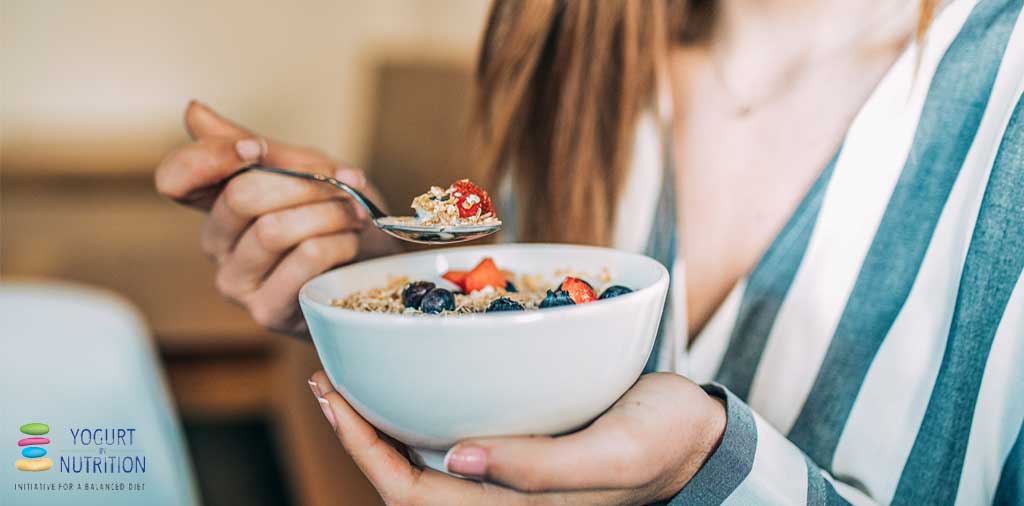Take a look at your breakfast. Are you grabbing something as you rush out of the house – anything to keep hunger at bay until you have time for a mid-morning snack? Or are you sitting down to a relaxed, healthy meal of fruit and yogurt?
Breakfast is the most important meal of the day, experts say. Yet many of us skip breakfast because we’re pushed for time at that crucial hour of the morning. Some scientists warn that missing breakfast can lead to people choosing unhealthy snacks later in the day and so piling on the pounds. That doesn’t mean an early morning fry-up is the order of the day. A large US study has identified several healthy foods, including yogurt, as a good start to your day.
Choosing healthy foods at breakfast time can be a challenge when you’re in a hurry to get on with your day. Despite impressive health claims, many breakfast cereals are loaded with sugar and fat.
The International Breakfast Research Initiative (IBRI) was a study conducted in Canada, Denmark, France, Spain, the UK and the USA that examined people’s breakfast food choices and identified the foods that we should be eating as part of a healthy breakfast. The authors of this article describe the study results for the USA, including data from over 14,000 children and adults.
Unhealthy breakfast habits are common
Nearly 20% of the US population skips breakfast. Young children and older adults are most likely to eat breakfast. In contrast, adolescents and young adults are least likely to eat breakfast, with 25% giving it a miss. Adults with a higher income or a college degree are most likely to eat breakfast.
Typical breakfast foods for children in the USA are milk, baked products and sweets. Adult breakfast foods include coffee/tea, sweets, fats and white bread.
Why is breakfast important?
Breakfast can be considered a nutrient-rich meal as long as it provides more nutrients than calories, say the authors.
Among those who ate breakfast in this US study, breakfast accounted for about 20% of daily energy intake. It provided just under 20% of daily protein and fats and 25% of total sugars.
However, it also provided more than 20% of the daily requirements for a host of vitamins and minerals, including B vitamins, vitamins A and D, folate, calcium, iron, potassium and magnesium.
“Even though the typical US breakfast provided more nutrients than calories, there was room for improvement in breakfast quality.” – Drewnowski et al, 2018.
Eating breakfast is associated with a better diet quality
Eating breakfast was associated with a healthier all-round diet, the authors found. Children and older adults had the healthiest diets, and adolescents had the least healthy diets. In adults, diet quality greatly improved with the level of education and with household incomes.
People who had the best diet quality consumed more fruit and juices, whole-grain products, milk and yogurt at breakfast time. They also ate less meat and eggs and less added sugars and fats than people with the least healthy diets.
“…higher-quality diets were associated with higher consumption of citrus fruit, juice and other fruits, whole grains and milk and yogurt.” – Drewnowski et al, 2018.
Dietary guidelines should consider breakfast patterns
The authors conclude that the results of this study, showing that the optimum breakfast consisting of fruit and juice, whole grain cereals and milk and yogurt, have implications for future dietary guidelines. It’s important to consider food choices and patterns, rather than focusing solely on the nutrient content of foods. And while the American breakfast does tend to be a nutrient-dense meal, there’s still room for improvement, the authors say.
Find out more: read the original article.



